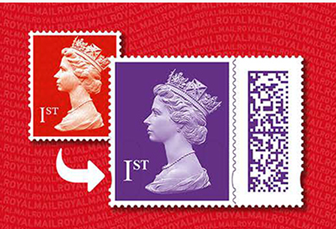
Welcome to our round up of the latest business news for our clients. Please contact us if you want to talk about how these updates affect your business. We are here to support you!
Last week we saw the Windsor Framework, agreed by the Prime Minister and European Commission President, replacing the old Northern Ireland Protocol, providing a new legal and UK constitutional framework.

The UK government states that “It delivers free-flowing trade in goods between Great Britain and Northern Ireland by removing any sense of the border in the Irish Sea for goods staying within the UK. These goods will travel as normal through a new green lane without red tape or unnecessary checks, with the only checks remaining designed to prevent smuggling or crime.”
The devil is always in the detail and what we can see is that the framework should deliver the free-flowing movement of goods between Northern Ireland and Great Britain:
A new green lane (the UK internal market scheme) means traders moving goods destined for Northern Ireland will be freed of unnecessary paperwork, checks and duties, using only ordinary commercial information rather than burdensome customs bureaucracy or complex certification requirements for agrifood. All goods destined for the EU will use the red lane.
Under the current protocol, some EU law applies in Northern Ireland, but politicians have no way to influence the rules, the new agreement reduces the proportion of EU rules applied in Northern Ireland to less than 3%. The European Court of Justice continues to be the final arbiter in disputes over these remaining rules. The framework introduces a "Stormont brake" which allows the Northern Ireland Assembly to raise an objection to a new goods rule. The process would be triggered if 30 Member of the Legislative Assembly (MLAs) from two or more parties sign a petition. The brake cannot be used for "trivial reasons" but reserved for "significantly different" rules.
UK VAT and excise rules will apply to Northern Ireland for alcoholic drinks for immediate consumption and immovable goods such as heat pumps; EU VAT rules will still apply for other items.
The UK government has confirmed it is scrapping the Northern Ireland Protocol Bill. Legal opinion published by the government says there is now "no legal justification" for going ahead with it after the new agreement.
In the wider scheme, this framework, if approved by all parties, can be considered good news for Northern Ireland and the UK as a whole.
In a White House statement, US President Joe Biden has hailed the UK and EU for reaching a deal on the protocol with the framework and has stated “I am confident the people and businesses of Northern Ireland will be able to take full advantage of the economic opportunities created by this stability and certainty, and the United States stands ready to support the region’s vast economic potential.”
Northern Ireland is now the only part of the UK which is essentially back to its “Pre-Brexit” trading status. The region could become a hub of new investment and a prime location to set up or grow a business with market access to both the EU and UK.
Ursula von der Leyen, European Commission President, described the framework as “good news for scientists and researchers in the EU and in the UK”, leading many to speculate the UK’s re-entry into the Horizon scheme, the continent-wide science research programme.
If the UK and the EU are now in a “closer” relationship then many in the financial services sector will be hoping for “Equivalence” with the EU on rules so that the EU will grant domestic market access to UK financial services companies, who were excluded under the original Brexit deal. The UK has already granted equivalence in 22 areas to European Economic Area (EEA) companies.
See: Windsor Framework unveiled to fix problems of the Northern Ireland Protocol - GOV.UK (www.gov.uk)
This may seem a strange time to be thinking about financial stability, but if we want to provide those we love with security then we need think long term.
The pandemic and the current increase in the costs of living show all too clearly that good health, and even life itself cannot be taken for granted.
When both partners’ income and assets are vital for the household’s financial security, it will inevitably mean financial difficulty for the survivor should either of them die.
With the right financial planning you can minimise the problems for your loved ones; here are a few reminders of the essentials:
1. Write your will
Without a will, your assets will be distributed according to intestacy rules. This would mean if you have surviving children, grandchildren, or great-grandchildren, your partner will inherit your personal property and only the first £270,000 and then half of the remainder of your estate. This could mean them losing their home.
Writing your will should therefore be a priority, especially if you’re not married or in a civil partnership. Common-law partners have no automatic legal right to inherit anything at all.
Getting help on the financial side of will writing could mean avoiding tax problems for all concerned.
2. Look at your pension
Your pension may be one of the largest assets you own. Many people are surprised that it is not covered by their will.
Instead, you will need to make your wishes clear to your pension provider to let your partner access the money within your pension.
You should also think about how you will take your pension. You could take an annuity; in return for your pension pot, an annuity can provide a guaranteed income for the rest of your life. A joint annuity is designed for couples and will provide an income so long as either partner lives – but the income provided will be lower.
A drawdown arrangement might offer a more rewarding alternative and provide greater flexibility to allow a surviving partner to make the financial arrangements they need.
It is a good idea to seek independent advice to ensure your pension can go on providing for your loved ones.
3. Take out a life insurance policy
Life cover is probably the most important step of all. A life insurance policy is designed to pay out a lump sum on death of the life or lives assured, providing your partner with the means to pay off things like the mortgage and help replace your income.
There are many kinds of life insurance and, in an attempt to keep the premiums to a minimum with a maximum level of cover, (subject to health and meeting underwriting conditions) most of us seem to choose term insurance, which ceases when we reach an agreed age. The facts show we are living longer, and this type of cover may run out. A whole of life policy will cost more but will potentially allow you to provide for your loved ones whatever age you reach.
You also need to ensure that you have the right level of cover. Inflation may mean that a lump sum that was adequate 10 years ago is far from sufficient now.
You might need to include some extra benefits to your life policy, for example Critical illness cover and Long-Term Income Protection cover. In addition, you may need to consider a further type of cover such as Accident, Sickness and Unemployment. All these types of protection have a part in providing real financial security.
4. Get expert help
Security for your loved ones is simply too important to leave to chance. Expert help with the planning is vital to ensure they have the financial future you want them to have, whatever happens to you. If you do not have an independent adviser, then ask us for a recommendation or see: Finding an adviser | FCA
The new penalties will impact businesses who submit their VAT returns or pay their VAT late. The first monthly returns and payments affected by the penalties are due by 7 March 2023.
The late payment penalties and points-based late submission penalties were introduced from 1 January 2023, replacing the VAT default surcharge, and apply to accounting periods which start on or after that date.
The penalties for late VAT returns also apply to businesses that submit nil returns and repayment returns. Changes have also been made to how interest is calculated.
The changes to VAT penalties and interest payments are:
Late submission penalties
These work on a points-based system. For each VAT return submitted late, HMRC customers will receive a penalty point until they reach the penalty point threshold – at which stage they will receive a £200 penalty. A further £200 penalty will also apply for each subsequent late submission while at the threshold, which varies to take account of monthly, quarterly and annual accounting periods.
Late payment penalties
If a VAT payment is more than 15 days overdue, businesses will pay a first late payment penalty. If the VAT payment is more than 30 days overdue, the first late payment penalty increases and a second late payment penalty will also apply. To help customers get used to the changes, HMRC will not charge a first late payment penalty on VAT payments due on or before 31 December 2023, if businesses either pay in full or a payment plan is agreed within 30 days of the payment due date.
Payment plans
HMRC will help businesses that cannot pay their VAT bill in full. HMRC customers may be able to set up a payment plan to pay their bill in instalments. After 31 December 2023, if a HMRC customer proposes a payment plan within 15 days of payment being due and HMRC agrees it, they would not be charged a late payment penalty, provided that they keep to the conditions of the payment plan. Late payment penalties can apply where proposals are made after the first 15 days, but the agreement of the payment plan can prevent them from increasing.
Interest calculations
HMRC has introduced both late payment and repayment interest, which will replace previous VAT interest rules. This brings the new regime in line with other taxes.
See: VAT penalties and interest - GOV.UK (www.gov.uk)
From 2025, ISDN (integrated services digital network) and PSTN (public switched telephone network) telephone lines will be permanently turned off. This applies to business and home customers.
You need to start planning your move today because there could be a lot to do.
Remember, it’s not just about your phone services, you need to review everything you’re connecting to your phone lines, like alarms, EPOS machines, door entry systems, CCTV, and faxes.
Many businesses have already embraced an all-digital model, moving their communications to the cloud, making calls over the internet and embracing video conferencing.
See: Getting ready for the 2025 PSTN switch-off (bt.com)
Find out about methods fraudsters use to try and get your personal information by viewing examples of scams identified by HMRC.
HMRC will sometimes contact customers by telephone, email, letter, and also sometimes use research companies to contact customers. If you’re not sure the contact is genuine then take a look the updated guidance on examples of HMRC related phishing emails, suspicious phone calls, and texts.
See: Examples of HMRC related phishing emails, suspicious phone calls and texts - GOV.UK (www.gov.uk)
Amazon, WRAP and EIT Climate-KIC, Europe’s leading climate innovation hub, have teamed up to support entrepreneurs with sustainable consumer products and recycling technologies.
The Sustainability Accelerator is open to start-ups who are creating more sustainable consumer products and, for the first time, those developing technology that can help the industry recycle products more effectively and efficiently.
The programme is now accepting applications from early-stage start-ups in Europe.
The closing date for applications is 17 March 2023.
See: Amazon Sustainability Accelerator
The UK Government is launching a competition for businesses to bid for a share of £1 million to stimulate innovation in Occupational Health (OH).
Successful bidders will receive up to £100,000 to back their projects from 19 May 2023, with the UK Government looking for innovative solutions to drive better access for SMEs and the self-employed to OH services. Applicants are being encouraged to demonstrate how they would deliver improvements to OH, harnessing technology such as artificial intelligence or data collection, to deliver better health outcomes for employees of SMEs.
Better health provision for staff helps employers look after their workforce, meaning more are likely to stay in work. While larger employers often have better access to OH services, for smaller businesses and the self-employed the lack of support for people with health needs can potentially lead to more people becoming economically inactive.
Applications can be from those who work alone or with others from business, research organisations, research and technology organisations or the third sector.
The competition closes on 15 March 2023.
Royal Mail have added barcodes to their regular stamps. Regular stamps without a barcode will no longer be valid after 31 July 2023. This follows the introduction of a 6 month grace period from the initial 31 January deadline. You can either use up your non-barcoded stamps before this new deadline or swap them for the new barcoded ones.

The stamps that have changed are the stamps that will be very familiar to you. They feature the profile of Her Late Majesty The Queen on a plain coloured background.
See: Know where your old stamps are? | Royal Mail Group Ltd - https://www.royalmail.com/sending/barcoded-stamps
If you are due to file accounts with Companies House, use the online services where possible and allow plenty of time before your deadline.
File online before your deadline. Companies House will send you an email to confirm that they have received your accounts. They will send you another email when they have registered your accounts.
If you’re a small company, you cannot file abbreviated accounts anymore. Find out your accounts filing options for small companies. You’ll still need to file accounts if your company is dormant.
Companies House online services are available 24 hours a day, 7 days a week - and there are inbuilt checks to help you avoid mistakes.
To file online, you will need your company authentication code. If you need to request a new code, you should allow up to 5 days for this to arrive at the company’s registered office.
Companies House advise that you should only send paper accounts if your company cannot file online. Accounts filed on paper need to be manually checked. Companies House can only check them during office opening hours, and they can take over a week to process.
If you need to file your accounts on paper, you should send them to Companies House well before the deadline. This will give you plenty of time to correct your accounts and resend them if they are rejected. You should also consider using a guaranteed next day delivery and note any factors which may make it difficult for a carrier to deliver on time. Companies House cannot accept postal delays as a reason to appeal a late filing penalty.
See: Filing your Companies House information online - GOV.UK (www.gov.uk)
The gender pay gap is the difference between the average (mean or median) earnings of men and women across a workforce.
From 2017, if you are an employer who has a headcount of 250 or more on your ‘snapshot date’ you must comply with regulations on gender pay gap reporting. Gender pay gap calculations are based on employer payroll data drawn from a specific date each year. This specific date is called the ‘snapshot date’.
There are two deadlines which each have their own snapshot dates:
See: Gender pay gap reporting: guidance for employers - GOV.UK (www.gov.uk)
A national hub for fintech excellence was formally launched last week, seeking to boost the sector’s growth and helping it to achieve truly global scale. The Centre for Finance, Innovation and Technology (CFIT) will champion the UK’s world-leading sector.
The CFIT seeks to build on the dominance of the UK’s fintech sector, which supports around 2,500 firms, tens of thousands of jobs in the UK, and is second globally only to the US for fintech investment, ahead of China and India.
It will provide a much-needed boost to people and businesses up and down the country, enabling them to benefit from new waves of technological change and innovation - widening consumer choice, cutting costs, and increasing efficiency for firms.
See: New national hub for fintech to be launched at Leeds event - GOV.UK (www.gov.uk)
The Health and Safety Executive (HSE) offers a wide variety of publications containing advice and guidance for employers, workers and the general public.
Like all HSE publications, the health and safety guidance leaflets are available to download on HSE's website.
See: HSE Publications - free leaflets to download

The following Cookies are used on this Site. Users who allow all the Cookies will enjoy the best experience and all functionality on the Site will be available to you.
You can choose to disable any of the Cookies by un-ticking the box below but if you do so your experience with the Site is likely to be diminished.
In order to interact with this site.
To help us to measure how users interact with content and pages on the Site so we can make
things better.
To show content from Google Maps.
To show content from YouTube.
To show content from Vimeo.
To share content across multiple platforms.
To view and book events.
To show user avatars and twitter feeds.
To show content from TourMkr.
To interact with Facebook.
To show content from WalkInto.